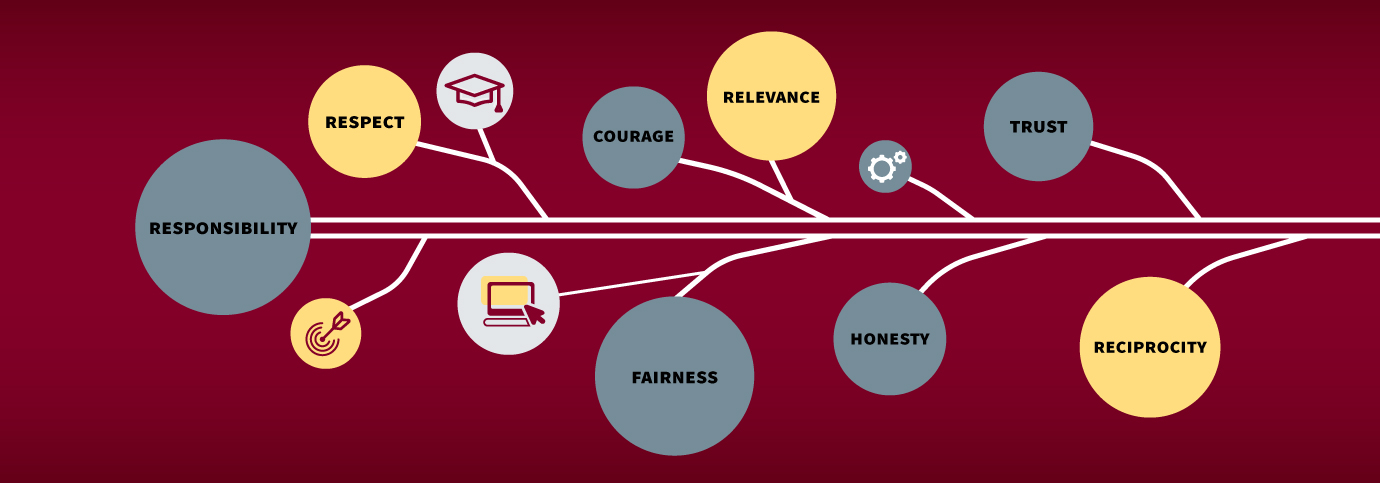Click on the boxes below to see some examples of academic misconduct and what you can do to prevent these issues.
*The information below is intended to provide general information only and does not replace the official Student Academic Integrity ST2 Policy and Procedures.
